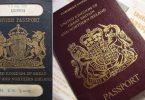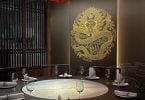A double of Taiwan’s one-time military strongman and ruler Chiang Kai-shek is drawing enthusiastic tourists from China, the very land that he swore to conquer while ruling the island single-handedly for decades.
Lee Teng-ko, a former bodyguard for the late leader’s son, stuns Chinese visitors whenever he greets them at a former Chiang residence in Taipei or at the family mausoleum in the hills of western Taiwan.
The bald head and spry mustache give Lee an uncanny likeness to the leader who died in 1975 after losing the Chinese civil war to Mao Zedong’s Communists in the 1940s, moving his Nationalist government to Taiwan and plotting to retake China.
Lee had helped run an orchard in California after retiring from the army until a Chinese-language newspaper reported the likeness. He moved back to Taiwan in 2001 and made the most of the resemblance over the next three years.
Now 80, he receives about one group per week, charging just under $1,000.
“I thought Mr Chiang was no longer around, but I see that he’s here again,” said a tourist from Shanghai surnamed Chen. “I was surprised. I was caught unprepared. He looks very much like Mr Chiang, with the same kindness.”
Although Chiang is often reviled at home for sometimes brutal one-party rule as Taiwan now enjoys a thriving democracy, Chinese tourists see him as a legend from textbooks and film.
“Once an old lady saw me sitting inside a VIP room. The lady was shocked and reported to the guard saying that General Chiang has been resurrected over there,” Lee said. “The guard came over and saw me, and he was surprised at my resemblance too.”
Taiwan’s dozens of monuments to Chiang draw many Chinese tourists, allowed to visit since 2008 as the ruling Nationalists get friendlier with Beijing after six decades of hostilities.
Chiang had antagonized China with designs to overthrow the Communists and enraged Taiwanese with his sometimes deadly “white terror” campaign against dissidents.
The Nationalists (KMT) have gradually pushed his image and name aside for promotional purposes, leaning more on his popular successor and son Chiang Ching-kuo.
(eTN): Chiang Kai-shek’s lookalike stuns Chinese tourists in Taipei | re-post license | post content






















